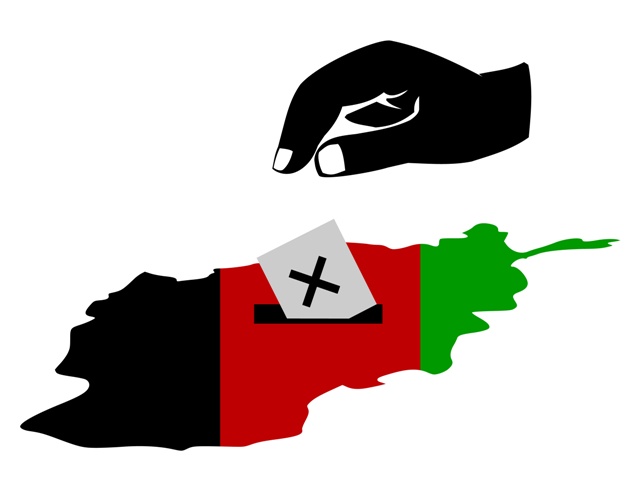Registration for next April’s presidential election in Afghanistan ended on Sunday 6 October 2013. The list of candidates range from the brother of current president Hamid Karzai and cabinet ministers who recently quit their posts to run for office, to a warlord accused of having past affiliations with al-Qaeda. The Taliban has rejected the process and refuses to take part in the election. The field of candidates is still very fluid, with alliance formations and negotiations expected to continue over the next six months.
2014: the main contenders

Among the main contenders from the political camp around President Karzai are his older brother Qayum Karzai, and Foreign Minister Zalmai Rassoul, speculated to be Karzai’s preferred choice. Rassoul has managed to tap Ahmad Zia Massoud, previously considered a leading opposition contender, as his vice-presidential candidate.
Major opposition candidates include former Foreign Minister and 2009 presidential election contender Abdullah Abdullah, who qualified for the 2009 run-off vote against Karzai but later withdrew blaming election fraud. Abdullah is at the forefront of the “Northern Alliance” part of the opposition which is dominated by ethnic minorities such as Tajiks, Uzbeks and Hazaras (Abdullah is part Tajik). Another main opposition candidate is former Finance Minister and Chair of the Transition Commission Ashraf Ghani (like Karzai an ethnic Pashtun), who has chosen the notorious Uzbek warlord Abdul Rashid Dostum as his running mate.
The list of registered candidates also includes Abdul Rassoul Sayyaf, a former warlord accused of inviting Osama bin Laden to take up refuge in Afghanistan, and blamed in the 9/11 Commission Report for being a mentor to Khalid Sheikh Muhammad (the operational mastermind of the 9/11 terrorist attacks).
Registration as political manoeuvring
The field is not limited to these figures. Karzai’s reluctance to announce any official endorsement seems to have encouraged many minor candidates to run. At the same time, major opposition politicians who had supposedly united under the “Electoral Union of Afghanistan” (including Abdullah, Massoud, and Dostum) failed to put forward a unity candidate, highlighting the polarisation of the opposition.
In a last-minute registration frenzy on October 6, the final number of registered candidates reached twenty-seven. Still, not all are likely to end up running. For one thing, uncertainty remains over whether all those registered meet the formal nomination criteria. Several of the wild card contenders could possibly act as spoilers and capture votes from the major candidates. However, analyst Thomas Ruttig argues that, “one cannot be sure whether they really intend to run or whether registering as candidates would be used to negotiate key positions on another ticket’s subsequent administration.”
Vetting of candidates
The Afghan Independent Election Committee will now vet the presidential hopefuls and issue a final list of candidates on November 16. However, alliance formation and political manoeuvring is far from over, and, as analyst Martine van Bijlert states, “the merry-go-round of meetings and support-swaps is likely to continue unabated in the six months that still remain until Election Day.”
2014 not only marks the year when President Karzai has to hand over power to a successor for a new five-year term (he cannot run again due to presidential term limits), but also the formal deadline for the withdrawal of foreign troops from the country (agreed to at the 2012 NATO summit in Chicago). Regardless of the election outcome, the long-term viability of the Afghan government remains uncertain. Indeed, in a report on Afghanistan’s transition, the International Crisis Group warned that, “plagued by factionalism and corruption, Afghanistan is far from ready to assume responsibility for security when U.S. and NATO forces withdraw in 2014.” The report also raised concerns about the legitimacy of the elections, warning that, “it is a near certainty that under current conditions the 2014 elections will be plagued by massive fraud.”








Reblogged this on Library of the European Parliament.
[…] published here by the Library of the European […]